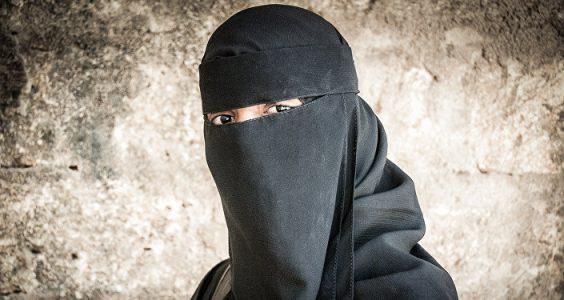
Fatal attraction: What drives young German women into the arms of ISIS terrorists?
Following the recent discovery in Iraq of several young female Daesh fighters from Germany, German youth workers are drawing attention to the warning signs of radicalization, Sputnik Deutschland reports.
The recent case of Linda W., a 16-year-old German runaway who was discovered by the Iraqi army in Mosul last month, has drawn attention to the recruitment of young girls by radical Islamist groups in Germany.
Linda W. was one of five German women discovered hiding in a network of tunnels below ground in the Syrian city, armed with weapons and suicide bomber belts, ready to blow up the advancing Iraqi army.
In the past few years, more than 930 Islamists have traveled from Germany to join the Daesh terrorist group in Iraq or Syria. According to Germany’s Federal Office for the Protection of the Constitution, 20 percent of them are women and five percent were minors. Of those under the age of 18, half were female, BZ Berlin reports.
Young women who travel to the Middle East to join the terrorist organization are often seeking recognition and a purpose in life, Tobias Meilicke, a youth worker and anti-violence activist based in Kiel, told Sputnik Deutschland.
“In the Islamic scene, young women find recognition, security, a community and above all a purpose,” explained Meilicke, whose organization, PROvention, woks to prevent religious extremism.
“The women and girls get given a purpose, which is fighting for oppressed Muslims, for their Muslim sisters in the Middle East,” he continued.
“These girls also experience exclusion in Germany. They cover themselves, they get attacked. In addition, they hold a romanticized notion of Islamic life. They are usually women who yearn for a conservative family life and want to live the classic female role. They earn criticism in Germany for having such an attitude,” Meilicke revealed.
German teacher Birgit Ebel has set up a charity to prevent young girls from being recruited by radical groups. She told Sputnik that family problems often contribute to their recruitment by radical Salafists, and the girls have a romantic notion of life in the so-called “Islamic State.”
“Very often, they have parents who are too strict or who don’t care for them or who are suffering from some kind of disease. Some of them are the children of divorced parents. They are looking for a new community, something new, a new family.”
Meilicke agreed that there is invariably a personal dimension to the girls’ recruitment.
“We know from many cases that we have dealt with, that radicalization always requires a personal approach. There are very few cases in which they were only radicalized over the Internet, even though the Internet plays an enormously important role in IS [Daesh] propaganda … The girls receive direct messages from good-looking Arab or German young men, who ultimately lure them to the Middle East.”
Ebel said there are some changes in behavior to note, which should warn adults that a minor is being recruited into extremism.
“If the girls don’t want to have anything to do with their friends, they don’t take part in leisure activities any more. If they suddenly start dressing differently, saying Islamic proverbs – all these are signs to notice. The goal of the radical recruiters is to bring the girls into a completely different world, a completely different society. They work like a sect. The girls are taken away at a young age and become completely dependent on this new community,” Ebel said.
Source: Sputnik





